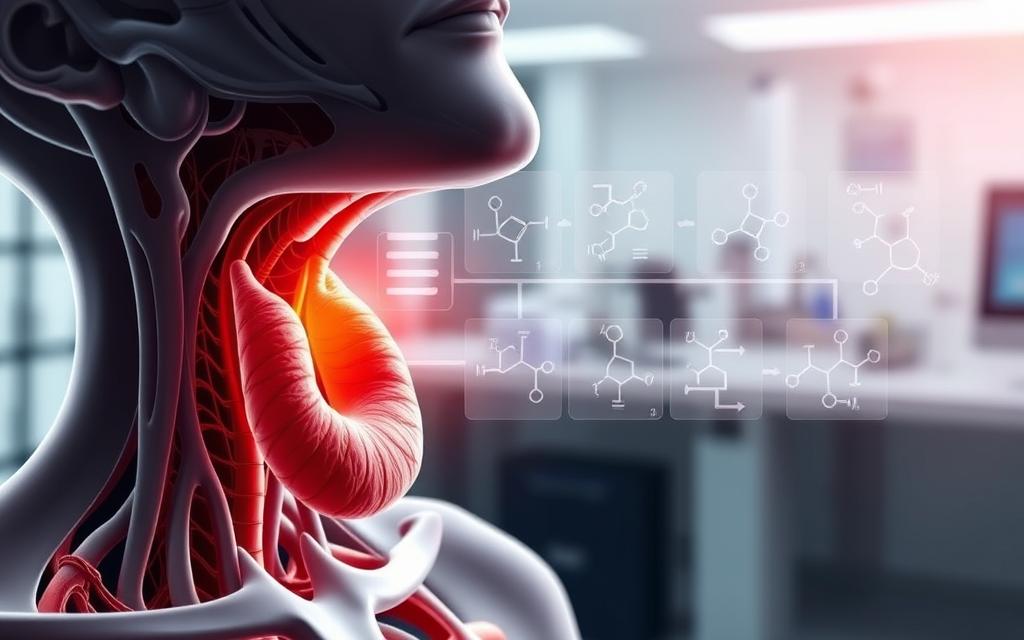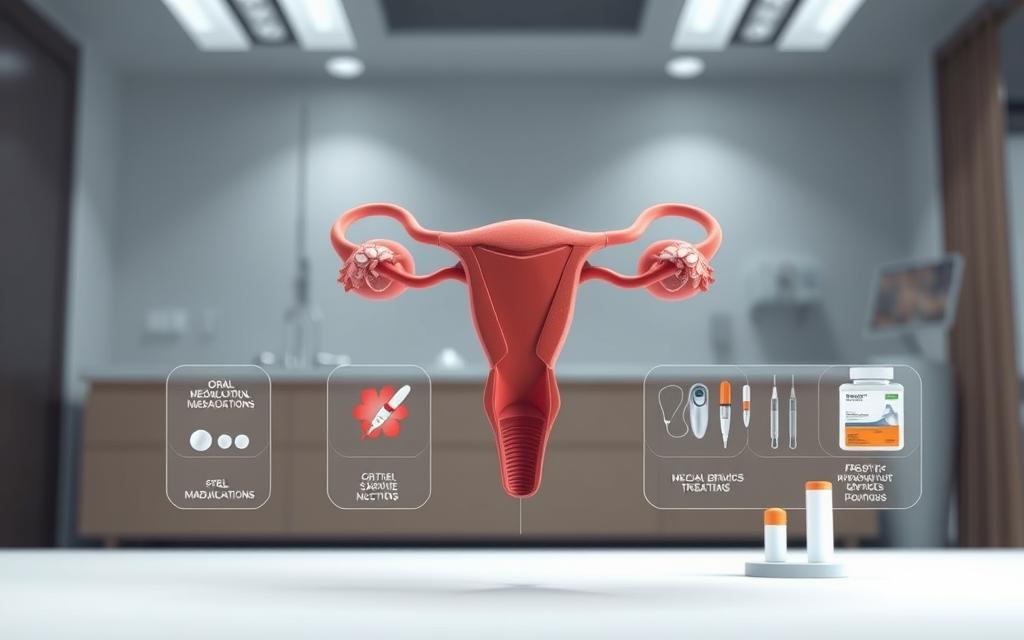Endocrinologist Can Help Treat Erectile Dysfunction: Expert Insights
Erectile dysfunction is a common condition affecting millions of men worldwide. Hormonal imbalance is a significant factor in this condition, impacting sexual health and overall well-being. An endocrinologist specializes in treating hormonal disorders, making them a crucial part of the treatment process.
Testosterone plays a vital role in sexual performance, and low levels can lead to erectile dysfunction. Consulting an endocrinologist can help identify the underlying causes and develop a personalized treatment plan. By addressing hormonal imbalances, individuals can improve their sexual health and overall quality of life.
Understanding Erectile Dysfunction and Its Hormonal Connections
Understanding erectile dysfunction requires a deep dive into its hormonal aspects, which are crucial for sexual health. Erectile dysfunction (ED) is a condition characterized by the inability to achieve or maintain an erection sufficient for satisfactory sexual performance.
Defining Erectile Dysfunction in Medical Terms
From a medical standpoint, ED is diagnosed when a man experiences difficulties with erection on a consistent basis, typically defined as occurring in at least 75% of sexual encounters. This condition can be categorized into different types, including psychogenic, organic, and mixed, depending on its causes.
The Prevalence of ED in American Men
Erectile dysfunction is a significant health issue affecting a substantial proportion of the male population in the United States. Studies suggest that approximately 40% of men at the age of 40 and up to 70% of men by the age of 70 experience some form of ED. The prevalence increases with age, and it’s also associated with various comorbid conditions such as diabetes, hypertension, and cardiovascular disease.
How Hormonal Imbalances Contribute to Sexual Dysfunction
Hormonal imbalances, particularly those involving testosterone, play a critical role in sexual dysfunction. Testosterone is essential for maintaining libido and erectile function. Low levels of testosterone, a condition known as hypogonadism, can lead to decreased sexual desire and erectile difficulties. Other hormonal issues, such as thyroid disorders, can also impact sexual health.
By understanding the hormonal connections to erectile dysfunction, healthcare providers can develop targeted treatment plans that address the underlying causes of ED, potentially improving treatment outcomes.
Why an Endocrinologist May Be the Right Specialist for ED
When it comes to treating erectile dysfunction, an endocrinologist’s expertise can be invaluable. Erectile dysfunction (ED) is a complex condition that can stem from a variety of factors, including hormonal imbalances, which are within the realm of an endocrinologist’s specialty.
The Endocrinologist’s Approach to Sexual Health
An endocrinologist approaches sexual health by focusing on the hormonal aspects that influence erectile function. They examine how imbalances in testosterone and other hormones can impact sexual performance and overall well-being.

Differentiating Between Hormonal and Non-Hormonal ED Causes
One of the critical roles of an endocrinologist is to differentiate between hormonal and non-hormonal causes of ED. This involves a thorough evaluation to determine if the condition is related to hormonal imbalances or other factors. For instance, a link between certain medications and ED highlights the need for a comprehensive assessment.
Comprehensive Hormonal Testing for ED Diagnosis
Comprehensive hormonal testing is a cornerstone of ED diagnosis when hormonal imbalances are suspected. Endocrinologists use various tests to assess hormone levels, including testosterone, to identify any imbalances that could be contributing to ED.
Does Folic Acid Treat Erectile Dysfunction? The Evidence
The potential link between folic acid and erectile dysfunction treatment has garnered significant attention in recent medical research. As we explore the relationship between folic acid supplementation and erectile dysfunction, it’s essential to understand the underlying mechanisms and the evidence supporting its use.
How Folic Acid Affects Nitric Oxide Production and Blood Flow
Folic acid plays a crucial role in enhancing nitric oxide production, a key factor in achieving and maintaining an erection. Nitric oxide helps to relax the smooth muscles in blood vessels, improving blood flow to the penis. Increased nitric oxide production is associated with improved erectile function. Folic acid supplementation can help optimize this process by supporting the body’s natural production of nitric oxide.
Research Studies Supporting Folic Acid for ED Treatment
Several research studies have investigated the efficacy of folic acid in treating erectile dysfunction. A notable study published in a reputable medical journal found that men with erectile dysfunction who received folic acid supplementation experienced significant improvements in erectile function compared to those who received a placebo. The results suggest that folic acid may be a valuable adjunct therapy for ED treatment.
Optimal Dosage and Supplementation Strategies
Determining the optimal dosage of folic acid for erectile dysfunction treatment is crucial. While the recommended dietary allowance (RDA) for folate is 400 mcg for adults, higher doses may be necessary for therapeutic benefits. Research indicates that doses ranging from 2.5 mg to 5 mg per day may be effective in improving erectile function.
Prescription Formulations vs. Over-the-Counter Supplements
When considering folic acid supplementation, it’s essential to differentiate between prescription formulations and over-the-counter (OTC) supplements. Prescription folic acid may be recommended for individuals with specific medical conditions or deficiencies, while OTC supplements are available for general use. However, the quality and potency of OTC supplements can vary significantly between brands.
Potential Side Effects and Who Should Avoid Folic Acid
While folic acid is generally considered safe, high doses can cause side effects such as nausea, abdominal distension, and insomnia. Certain individuals, including those with vitamin B12 deficiency or a history of cancer, should consult their healthcare provider before starting folic acid supplementation. It’s crucial to follow the recommended dosage and monitor for any adverse effects.
Beyond Folic Acid: Other Endocrine Treatments for ED
Beyond the familiar realm of folic acid, other endocrine treatments are gaining recognition for their effectiveness in addressing erectile dysfunction. While folic acid remains a valuable supplement, exploring additional hormonal therapies can provide a more comprehensive approach to treating ED.
Testosterone Replacement Therapy: Benefits and Risks
Testosterone replacement therapy (TRT) is a significant treatment option for men with low testosterone levels contributing to their ED. TRT can improve libido, increase muscle mass, and enhance overall sexual function. However, it’s crucial to weigh these benefits against potential risks, such as cardiovascular concerns and the need for careful monitoring.
For more information on related treatments, you can visit https://www.coloradourologists.com/benfotiamine-and-erectile-dysfunction/ to explore how other supplements impact ED.
Thyroid Hormone Optimization for Sexual Function
Thyroid hormone plays a vital role in regulating metabolism, energy, and overall hormonal balance. Optimizing thyroid hormone levels can significantly impact sexual function and potentially alleviate ED symptoms. Ensuring proper thyroid function through medication or lifestyle changes can be a critical component of ED treatment.

Combining Hormonal Treatments for Enhanced Results
Combining different hormonal treatments can sometimes yield better results than a single treatment approach. For instance, pairing TRT with thyroid hormone optimization may address multiple facets of ED, leading to improved outcomes. However, this approach requires careful consideration and monitoring by a healthcare professional to minimize risks and maximize benefits.
Patient Case Studies: Successful Hormonal Interventions
Real-life examples illustrate the effectiveness of these treatments. Consider the case of a 45-year-old man with ED, whose symptoms improved significantly after starting TRT and thyroid hormone optimization. Such case studies highlight the potential of hormonal treatments when tailored to individual needs.
| Treatment | Benefits | Potential Risks |
|---|---|---|
| Testosterone Replacement Therapy | Improved libido, increased muscle mass | Cardiovascular concerns, need for monitoring |
| Thyroid Hormone Optimization | Regulated metabolism, improved energy | Risk of over-suppression or under-suppression |
| Combining Hormonal Treatments | Enhanced results, addressing multiple ED facets | Increased risk of side effects, need for careful monitoring |
Lifestyle Modifications to Support Hormonal ED Treatment
Making lifestyle modifications can significantly enhance the effectiveness of hormonal treatments for erectile dysfunction. By incorporating specific dietary changes, exercise protocols, and stress reduction techniques, individuals can support their hormonal ED treatment and improve overall sexual health.
Specific Dietary Changes That Enhance Folic Acid Effectiveness
A diet rich in fruits, vegetables, and whole grains can complement folic acid supplementation. Foods high in antioxidants, such as berries and leafy greens, help improve nitric oxide production, which is crucial for erectile function. It’s also beneficial to limit or avoid foods that can negatively impact erectile health, such as those high in saturated fats and sugars. For more information on foods to avoid, visit Colorado Urologists.
Exercise Protocols That Improve Hormonal Balance
Regular exercise is a key component of maintaining hormonal balance. Aerobic exercises, such as cycling and swimming, can improve cardiovascular health, while resistance training can boost testosterone levels. Aim for at least 30 minutes of moderate-intensity exercise per day to support hormonal ED treatment.
Stress Reduction Techniques for Optimal Endocrine Function
Chronic stress can disrupt endocrine function, leading to hormonal imbalances that can exacerbate ED. Techniques such as meditation, yoga, and deep breathing exercises can help reduce stress levels.
Sleep Optimization for Hormonal Health
Getting adequate sleep is crucial for maintaining hormonal balance. Aim for 7-8 hours of sleep per night and establish a consistent sleep schedule to support endocrine function.
Conclusion: Partnering With an Endocrinologist for Effective ED Management
Effective management of erectile dysfunction requires a comprehensive approach that addresses the underlying hormonal imbalances. By partnering with an endocrinologist, individuals can benefit from a specialized understanding of the hormonal connections that contribute to ED.
An endocrinologist can provide personalized guidance on erectile dysfunction treatment options, including hormonal therapies and lifestyle modifications that support overall sexual health. By addressing the root causes of ED, individuals can experience improved treatment outcomes and enhanced quality of life.
Seeking professional help from an endocrinologist is a proactive step towards reclaiming sexual health and overall well-being. With the right treatment approach, individuals can overcome the challenges of ED and achieve a more fulfilling life.
